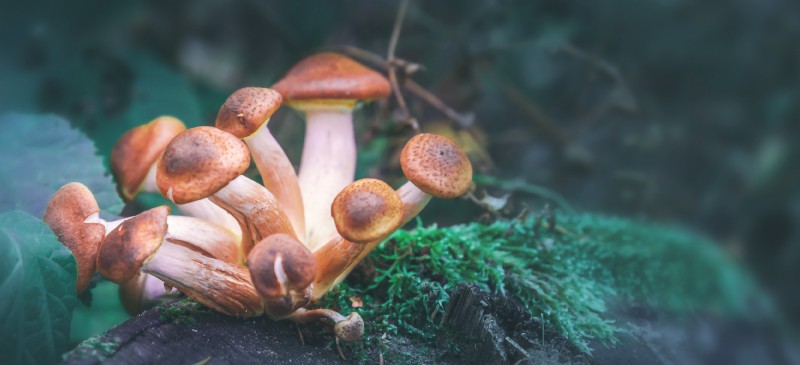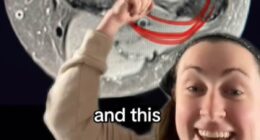
While psychedelic mushrooms and hallucinogens seem like a relic from a hippie, Grateful Dead–loving past, they’re giving doctors new hope in treating a range of mental health issues.
In particular, the “magic mushrooms” discussed here contain psilocybin, which a recent study indicated could help alleviate severe depression. Previously, studies have also indicated that psilocybin can reduce anxiety and depression among cancer patients.
However, psilocybin is also labeled a Schedule I substance under the Controlled Substances Act, according to the U.S. Department of Justice.
Therein lies the rub. Let’s take a look at what the research indicates regarding its therapeutic potential and the complicated legal picture.
What Is Psilocybin?
Magic mushrooms are known as Psilocybe cubensis and are a species of psychedelic mushrooms. They’re the scientific name for more than 100 mushroom species that contain psilocybin and psilocin. These two compounds account for the psychoactive properties that cause hallucinations and “tripping” when a person ingests these mushrooms.
These so-called magic mushrooms can be wild or cultivated. Psilocybin is also considered a popular but illegal psychedelic, according to the Substance Abuse and Mental Health Services Administrations.
Magic mushrooms with psilocybin are often prepared by drying and then are ingested, often by being mixed into food or drinks. They also go by such names as shrooms, booms, golden tops, blue meanies and mushies.
The effects of psilocybin usually take around 30 minutes to start and can last up to six hours.
Like so most drugs and chemicals that alter the mind, researchers aren’t yet exactly sure psilocybin works. What they do know, however, is that when psilocybin reaches the brain, it decreases brain activity, particularly in the medial prefrontal cortex (mPFC) and the posterior cingulate cortex (PCC). The mPFC is associated with obsessive thinking and, in people with depression, is usually overactive. In fact, antidepressants all stifle mPFC.
The PCC, on the other hand, is believed to play a role in consciousness, ego and sense of self. Psilocybin seems to quiet down the “noise” in a person’s brain, letting them access parts of their mind that are normally stifled. It also seems to affect serotonin, the neurotransmitter linked to moods, anxiety and depression.
One researcher likened psilocybin to “inverse PTSD.” But instead of a traumatizing incident haunting patients, instead, the psilocybin creates a really positive memory they can turn to for months.
In fact, during the 1950s and ‘60s, hallucinogens like psilocybin were being studied for their potential in the psychiatry and oncology fields. However, in 1970, the Controlled Substances Act was signed into law. It categorized hallucinogens like psilocybin mushrooms as a Schedule 1 drug, meaning it has a high potential for abuse and had no accepted medical use in treatment in the U.S. Federal funds for research dried up.
But slowly the tide is turning, as the latest studies about psilocybin show there is a lot of therapeutic potential to be explored.
Potential Benefits
The latest research is indicating that psilocybin may assist with serious medical conditions, and research institutions like Johns Hopkins University are urging a reclassification of this substance from Schedule I to IV so it can be used for medical treatments. In fact, Johns Hopkins operates the Center for Psychedelic and Consciousness Research, where researchers focus on how psychedelics affect behavior, mood, cognition, brain function and the biological markers of health.
In any case, if such a shift to Schedule IV were to happen, psilocybin would be available by a prescription. Here are some of the promising benefits of psilocybin mushrooms.
1. Depression
In a groundbreaking new study published in The New England Journal of Medicine, a single dose of a synthetic version of psilocybin helped alleviate depression in people with a treatment-resistant version of the disease. Treatment-resistant depression can only be diagnosed if a person doesn’t respond to two separate courses of antidepressants, and it can be fairly common — of the 9 million Americans who have medically treated depression, 3 million are considered treatment-resistant.
READ RELATED: How to harness the healing power of garlic: It's good for blood pressure and may fight colds
The randomized, double-blind clinical trial with 233 participants compared results of a 25-milligram dose to a 10-milligram and 1-milligram dose. The strongest dose of 25 milligrams was far more effective than the other doses and the effects lasted up to three months.
Depression levels were evaluated the day after the does and then another five times over a three-month period. Around 37 percent of participants who took the 25-milligram dose showed improvement and 29 percent were shown to be in remission at week three.
However, adverse events occurred in 77 percent of the participants, a high-risk group. This included headache, nausea and dizziness after the dose day. In addition, suicidal ideation or behavior or self-injury occurred with some individuals in all three dose groups.
Therefore, trials that are both larger and longer will be needed to determine how effective and safe psilocybin is for treatment-resistant depression.
2. Depression and anxiety among cancer patients
For people with cancer, the diagnosis often is just the beginning. The side effects from a variety of treatments, the anxiety that comes along with a life-threatening illness, having to navigate the regular stresses of daily life — it can be a lot to handle. In fact, it’s estimated that more than 30 percent of cancer patients meet the criteria for mood disorders. (1)
The threat isn’t over after eliminating the disease, either. Suicide rates among cancer survivors is nearly double that of the general population. But could magic mushrooms change that?
Two studies published in The Journal of Psychopharmacology found that psilocybin reduces anxiety and depression among cancer patients and survivors in just one session. These one-off experiences also had lasting effects.
Just this single dose of psilocybin, which lasts between four to six hours, decreased anxiety and depression in most participants and occurred right in that session, as opposed to antidepressants and therapy, which can take weeks or months to work. Participants found themselves with an increased quality of life, life meaning and optimism.
The results were long-lasting, too. Six months after the last treatment, 80 percent of the group continued showing clinically significant decreases in depressed mood and anxiety. Eighty-three percent said there was an increase in their well-being, and 67 percent rated the experience as one of the top five meaningful experiences in their lives.
3. Cluster headaches
Another study discovered that people who self-medicated (again, this is illegal in the U.S.) with small doses of psilocybin were able to alleviate cluster headaches while avoiding any psychoactive effects of the drug. This so-called microdosing may allow the benefits of the substance to be experience while greatly minimizing the undesirable side effects.
Future Study and Application of Psilocybin
Will psilocybin mushrooms become the new go-to treatment for depression and potentially other disorders like anorexia or bulimia? Not so fast.
For starters, these studies required a waiver in order to use psilocybin, as it’s still illegal in the U.S. Additionally, these studies were conducted with professionals in a controlled, supervised environment.
The participants were screened for family histories of mental illness and other drug use. For certain mental diseases, like schizophrenia, treatment with psilocybin would likely be harmful. The researchers involved in the study also emphasized that the positive results doesn’t mean that people should hallucinogenic mushrooms in a treatment plan.
In addition, side effects from using psilocybin mushrooms can include nausea, fatigue, nervousness, paranoia, hallucinations, panic and even psychosis.
Final Thoughts
Psilocybin is an exciting, promising therapy for people dealing with devastating depression and other maladies. Johns Hopkins is also studying its application for quitting smoking, Alzheimer’s, Lyme Disease, obsessive compulsive disorder and eating disorders.
But because it’s not likely to become a widespread therapy anytime soon, it’s not a treatment you can really bank on. If you are interested, keep your eyes peeled for trials. And if you are feeling depressed, anxious or suicidal, please get in touch with your health provider and/or the National Suicide Prevention Hotline.
Source:








